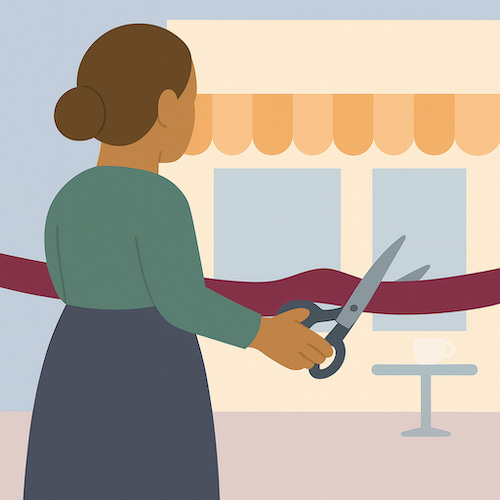Are you looking to expand your business into Europe? The Netherlands offers a business-friendly ecosystem, strategic location, and thriving economy, making this small, wealthy nation an excellent investment opportunity. But how, in practice, does starting a business in the Netherlands work? In this article, you’ll learn how to start a business in the Netherlands, from registration, costs and legal steps.
Why the Netherlands is the gateway for GCC businesses
It’s not hard to see why the Netherlands is an attractive location for many foreign businesses. It has:
- A trillion-dollar economy
- A gateway to 450 million consumers
- Different business structures to choose from, with full legal ownership
- A raft of business and tax schemes to incentivize new business
- Tremendous communication infrastructure (telecoms, media, data centers)
Potential sectors for GCC investment
Technology: For tech-focused investors from the Middle East, the Amsterdam area has established itself as a major tech hub in Europe, cultivating opportunities for upward mobility for over 2,000 startups while also hosting the regional offices of international powerhouses such as TomTom and Netflix. The Dutch government supports tech innovation with favorable policies and funding programs.
Logistics: Logistics is another golden opportunity. Rotterdam is Europe’s largest and most advanced port facility, handling over 460 million tons of cargo annually, including over 12 million TEU containers. Its excellent infrastructure and location make it one of the world’s top 10 ports, providing a vital link between the North Sea and Europe’s industrial heartland. Ideal for GCC companies seeking to expand their distribution across Europe.
Food & Beverage: With an annual growth rate of 8%, the Netherlands’ halal food market appears to be experiencing consistent profitability. With a growing Muslim population, halal products are gaining attention and are being accepted in supermarkets and restaurants alike.
Learn more about starting a food business in the Netherlands
Adding to its appeal, the Netherlands ranks as the world’s most English-proficient country according to the EF English Proficiency Index, eliminating language barriers that exist in other European markets.
Netherlands vs. GCC: Quick Comparison
| Factor | GCC | Netherlands |
| Startup Time | 1 to 3 days – 8 weeks | 1-2 weeks |
| Corporate Tax | 0-20% | 19-25.8% (lower for SMEs) |
| VAT | 5-15% | 0-21% |
In Bahrain and Oman, it takes between 3 and 5 days to open a business; however, the process can be longer in other GCC countries. It typically lasts 1-2 weeks in the Netherlands.
In the Netherlands, VAT is chargeable at 21%, 9% for essential services-related products, and 0% in some circumstances. While corporate tax rates may seem high at 19-25.8% compared to those of GCC countries, other advantages could offset this. Once registered in the Netherlands, you gain not only a strong domestic market on your doorstep, with robust infrastructure and a business environment capable of supporting rapid growth, but also a strategic launchpad for the entire European economic area—some 450M consumers.
Setup process
For entrepreneurs ready to set up in Europe, understanding Dutch business registration is the first step. Here’s what you need to know:
1. Choosing your business structure
There are different legal structures to choose from in the Netherlands. The Besloten Vennootschap (BV) is generally the most preferred option, which is most like an LLC (Limited Liability Company). It provides the relief of a limited liability; that is, personal assets are distinguished from the liabilities of the business.
Another option is sole proprietorship (eenmanszaak), with its quick and cheap setup, or a general partnership (VOF). Choosing the right legal structure is key since it determines liability, taxes, and growth potential.
2. Registering with the Chamber of Commerce (KVK)
Whatever you decide above, you’ll need to register with the Dutch Chamber of Commerce. Setting up a company is relatively easy. Here’s how to register with the Kamer van Koophandel (KVK) in the Netherlands:
- Choose Business Structure (e.g., sole proprietorship, BV, VOF)
- Check visa/residence permit (Non-EU citizens need a valid work permit or Visa)
- Prepare Documentation (Passport, business details)
- Arrange a business address
- Register with the KVK.
- Book an in-person appointment
- Pay the fee (€50–€125, depending on type of business)
- Open a Dutch Business Bank Account (Requirement for BVs)
- Apply for Additional Permits (e.g., food safety)
The duration typically ranges from 1 to 28 days for this process, depending on the sector and legal status.
What is the cost of setting up a business in the Netherlands?
Costs vary according to the type of business and the structure you choose. The following are approximate costs based on KVK registration, insurance, and banking. Obviously, there will be additions.
- Sole Proprietorship (Eenmanszaak): from €75–€250
- Private Limited Company (BV / Besloten Vennootschap: from €600–€2,000
- Partnership (VOF / Maatschap): from €50–€500
Expanding into the Netherlands: a logical decision
For Middle Eastern businesses seeking access to the European market, the Netherlands offers everything essential: great transport infrastructure, a prime location, and significant economic potential.
While there are differences from the business culture of the Middle East, primarily in terms of direct communication and hierarchy, these are adjustments well worth navigating with informed advice. A stable economy, a multilingual workforce, and a policy environment that fosters innovation make this country the ideal location for GCC companies to establish their European foothold.
Ready to explore your options?
AdamoDigi’s Netherlands Market Entry Service supports entrepreneurs from the GCC throughout the whole process, from company registration to cultural onboarding. Our experts will ensure a smooth journey through Dutch bureaucracy and provide assistance in connecting with partners on the ground.
Could your business thrive in the Netherlands? Let’s explore. Contact us now for a free consultation and discover how to drive growth and success in this thriving European business environment and how to start a business in the Netherlands.
Frequently Asked Questions (FAQ)
Why is the Netherlands a good gateway for GCC investors into Europe?
As a trillion-dollar economy, the Netherlands provides direct market access to 450 million European consumers. It has an infrastructure and plenty of tax incentives making investment opportunities attractive to foreign investors. Its crucial position, world-class logistics and proficiency in English (ranked #1 in Europe) present no barriers to GCC investors trying to target the EU market.
What are the basic steps and costs involved in setting up a business in the Netherlands?
To begin with, choose a legal form of organization under Dutch Law (e.g., BV/LLC, sole proprietorship, etc.). The next step is to register the company with the Dutch Chamber of Commerce (KVK) by furnishing the required documents and paying the registration fees, making sure you have a registered address; these fees can be in a range of €50–€2,000, depending on the structure. Registration usually takes anywhere between one and 28 days, but requires further permits in some cases (such as food safety).
How do Dutch startup fees and taxes compare to those in GCC countries?
While Dutch corporate tax (19–25.8%) is higher than GCC rates (0–20%), the setup is efficient (1–2 weeks vs. 1 day–8 weeks in GCC). Costs run from €75 (sole proprietorship) to €2,000 (BV). The trade-off is access to the EU market, solid infrastructure, and softer policies toward innovation.




